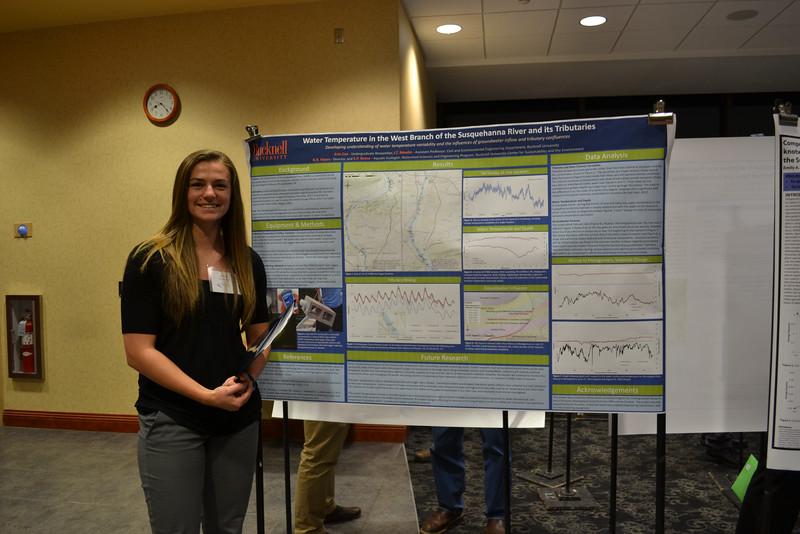Annual Symposium explores Susquehanna
December 4, 2014
The University hosted the Ninth Annual Susquehanna River Symposium “Science and the River: Ongoing Projects and Research in the Susquehanna Watershed” on Nov. 21 and 22.
This theme was selected because the program coordinators expressed that academics should share findings with local conservancies, regulators, planners, consultants, and industry leaders in addition to the usual conferences and publication presentations. The symposium was presented by the Watershed Sciences and Engineering Program of the Bucknell Center for Sustainability and the Environment.
“Some of our research here at Bucknell is showing that the river is getting warmer, not only due to increasing ambient temperatures but also because groundwater recharge to the river is diminishing as our aquifers are stressed by urbanization and industrial pumping. A goal of this symposium is to spark new ideas and perhaps even opportunities for new collaborative research,” Director of the Watershed Sciences and Engineering Program Benjamin Hayes said.
With an attendance of approximately 180 for the weekend, the symposium featured over 70 student research posters and 22 oral presentations from a variety of scientists and engineers from universities, private consulting firms, state and federal agencies, as well as the Geisinger Center for Health Research.
Most presenters were not directly affiliated with the University, but at least 16 University students and faculty presented their research.
This event was targeted at scientists and engineers in the area and provided a forum to discuss issues concerning the watershed. Some of the groups that attended the event included local fisherman and conservation groups, high school students and their parents, and people from as far away as Harrisburg, State College, and Pittsburgh. The event was free and open to all, which was a factor in drawing such a large number of people.
“It was an enjoyable and very stimulating weekend–everyone agreed they learned so much more about the Susquehanna watershed and the high-caliber of research,” Hayes said.






















